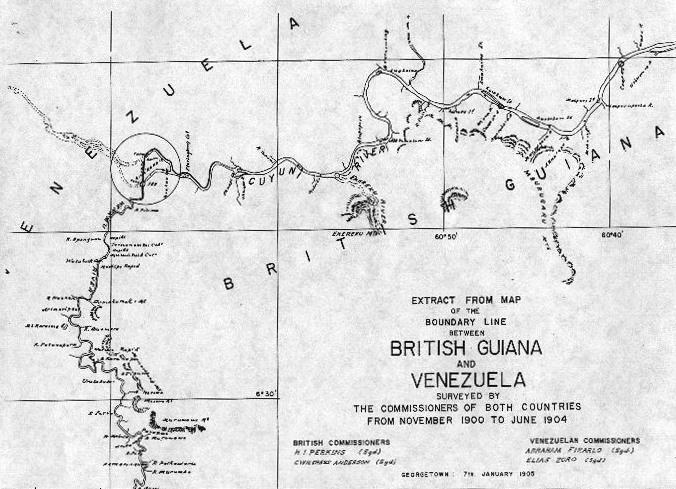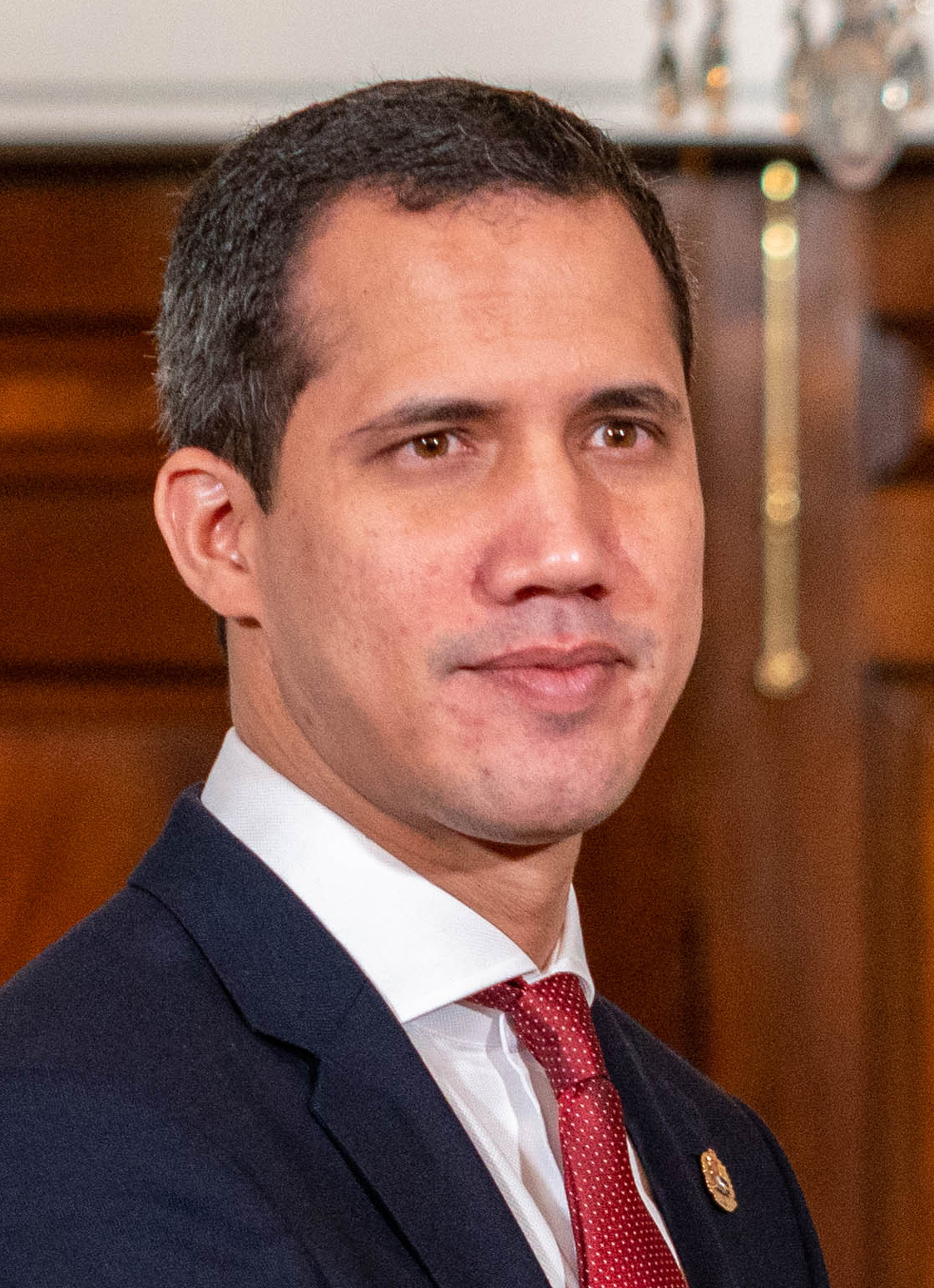|
Ankoko Island
Ankoko Island ('' es, Isla de Anacoco'') is an island located at the confluence of the Cuyuni River and Wenamu River, at , on the border between Venezuela and the disputed area of Guayana Esequiba. Venezuela, which claims Guayana Esequiba as part of its territory, established a military base on the island in 1966, which Guyana claims as intrusion and aggression on a territory whose sovereignty was never under discussion. History Venezuelan occupation In February 1966, the governments of Venezuela, the United Kingdom and Guyana signed the Geneva Agreement aimed at resolving the controversy over the Guayana Esequiba territorial dispute. Five months after Guyana's independence from the United Kingdom, Venezuelan troops began their occupation of Ankoko Island and surrounding islands in October 1966. Venezuelan troops quickly constructed military installations and an airstrip. Subsequently, on the morning of the 14 October 1966, Forbes Burnham, as Prime Minister and Minister ... [...More Info...] [...Related Items...] OR: [Wikipedia] [Google] [Baidu] |
Venezuelan Presidential Crisis
The Venezuelan presidential crisis is an ongoing political crisis concerning the leadership and the legitimate president of Venezuela; the office of the president has been contested since 10 January 2019, with the nation and the world divided in support for Nicolás Maduro or Juan Guaidó. The process and results of the 20 May 2018 presidential election were widely disputed. The opposition-majority National Assembly declared Maduro a "usurper" of the presidency on the day of his second inauguration and disclosed a plan to set forth its president Guaidó as the succeeding acting president of the country under article 233 of the Venezuelan Constitution. A week later, the Supreme Tribunal of Justice declared that the presidency of the National Assembly was the "usurper" of authority and declared the body to be unconstitutional. Minutes after Maduro took the oath as president, the Organization of American States (OAS) approved a resolution in a special session of its Permanent ... [...More Info...] [...Related Items...] OR: [Wikipedia] [Google] [Baidu] |
Territorial Disputes Of Venezuela
A territory is an area of land, sea, or space, particularly belonging or connected to a country, person, or animal. In international politics, a territory is usually either the total area from which a state may extract power resources or an administrative division is usually an area that is under the jurisdiction of a sovereign state. As a subdivision a territory is in most countries an organized division of an area that is controlled by a country but is not formally developed into, or incorporated into, a political unit of the country that is of equal status to other political units that may often be referred to by words such as "provinces" or "regions" or "states". In its narrower sense, it is "a geographic region, such as a colonial possession, that is dependent on an external government." Etymology The origins of the word "territory" begin with the Proto-Indo-European root ''ters'' ('to dry'). From this emerged the Latin word ''terra'' ('earth, land') and later the La ... [...More Info...] [...Related Items...] OR: [Wikipedia] [Google] [Baidu] |
River Islands Of Venezuela
A river is a natural flowing watercourse, usually freshwater, flowing towards an ocean, sea, lake or another river. In some cases, a river flows into the ground and becomes dry at the end of its course without reaching another body of water. Small rivers can be referred to using names such as creek, brook, rivulet, and rill. There are no official definitions for the generic term river as applied to geographic features, although in some countries or communities a stream is defined by its size. Many names for small rivers are specific to geographic location; examples are "run" in some parts of the United States, "burn" in Scotland and northeast England, and "beck" in northern England. Sometimes a river is defined as being larger than a creek, but not always: the language is vague. Rivers are part of the water cycle. Water generally collects in a river from precipitation through a drainage basin from surface runoff and other sources such as groundwater recharge, springs, a ... [...More Info...] [...Related Items...] OR: [Wikipedia] [Google] [Baidu] |
Corocoro Island
Corocoro Island (Isla Corocoro) is an island near the mouth of the Amacuro River and in the delta of the Barima River in South America. The northernmost part of the land border between Guyana and Venezuela runs through the island. It is one of the few islands that is divided between more than one sovereign state. The vast majority of the island is Venezuelan territory (610 square kilometers) . The north side of the island is the Atlantic Ocean and the south side is the Barima River. Venezuela does not recognize the border that divides the island, since it considers its eastern part, as part of the claimed territory of Guayana Esequiba. Venezuela claims the island in its entirety (689 square kilometers). Reserve The Venezuelan-controlled part of 61,000 hectares or 610 km² is part of a natural reserve protected by the Venezuelan government, called the Imataca Reserve, and is part of the so-called Coastal Protection Zone. See also *List of divided islands This is a list of is ... [...More Info...] [...Related Items...] OR: [Wikipedia] [Google] [Baidu] |
British Guiana
British Guiana was a British colony, part of the mainland British West Indies, which resides on the northern coast of South America. Since 1966 it has been known as the independent nation of Guyana. The first European to encounter Guiana was Sir Walter Raleigh, an English explorer. The Dutch were the first Europeans to settle there, starting in the early 17th century, when they founded the colonies of Essequibo and Berbice, adding Demerara in the mid-18th century. In 1796, Great Britain took over these three colonies during hostilities with the French, who had occupied the Netherlands. Britain returned control to the Batavian Republic in 1802 but captured the colonies a year later during the Napoleonic Wars. The colonies were officially ceded to the United Kingdom in 1815 and consolidated into a single colony in 1831. The colony's capital was at Georgetown (known as Stabroek prior to 1812). The economy has become more diversified since the late 19th century but has relied on r ... [...More Info...] [...Related Items...] OR: [Wikipedia] [Google] [Baidu] |
El Nacional (Caracas)
''El Nacional'' is a Venezuelan publishing company under the name C.A. Editorial El Nacional, most widely known for its ''El Nacional'' newspaper and website. It, along with ''Últimas Noticias'' and '' El Universal,'' are the most widely read and circulated daily national newspapers in the country. In 2010, it had an average of 83,000 papers distributed daily and 170,000 copies on weekends. Since the increase of censorship in Venezuela during the presidencies of Hugo Chávez and Nicolás Maduro, ''El Nacional'' has been described as one of the last independent newspapers in Venezuela. ''El Nacional'' published its final print edition on 14 December 2018 (after having been cut to five print editions per week back in August), joining in the dozens of anti-government newspapers in the nation that have stopped printing due to paper and toner shortages. It became an exclusively online newspaper after the date. Contributors and owners ''El Nacional'' was founded in August 1943 in Car ... [...More Info...] [...Related Items...] OR: [Wikipedia] [Google] [Baidu] |
National Assembly Of Venezuela
The National Assembly ( es, Asamblea Nacional) is the legislature for Venezuela that was first elected in 2000. It is a unicameral body made up of a variable number of members, who were elected by a "universal, direct, personal, and secret" vote partly by direct election in state-based voting districts, and partly on a state-based party-list proportional representation system. The number of seats is constant, each state and the Capital district elected three representatives plus the result of dividing the state population by 1.1% of the total population of the country. Three seats are reserved for representatives of Venezuela's indigenous peoples and elected separately by all citizens, not just those with indigenous backgrounds. For the 2010 to 2015 the number of seats was 165. All deputies serve five-year terms. The National Assembly meets in the Federal Legislative Palace in Venezuela's capital, Caracas. Legislative history 1961 Constitution Under its previous , Venezuela ha ... [...More Info...] [...Related Items...] OR: [Wikipedia] [Google] [Baidu] |
Juan Guaidó
Juan Gerardo Guaidó Márquez (born 28 July 1983) is a Venezuelan politician, a former member of the Social democracy, social-democratic Popular Will party, and federal deputy to the National Assembly (Venezuela), National Assembly representing the state of Vargas (state), Vargas. On 23 January 2019, Guaidó and the National Assembly declared he was acting president of Venezuela (), starting the Venezuelan presidential crisis by challenging Nicolás Maduro's presidency. Guaidó's political career began when he emerged as a student leader in the 2007 Venezuelan protests. He then helped found the Popular Will party with Leopoldo López in 2009, and was elected to be an alternate deputy in the National Assembly one year later in 2010. In 2015, Guaidó was elected as a full-seat deputy. Following a protocol to annually rotate the position of President of the National Assembly among political parties, Popular Will nominated Guaidó for the position in 2019. Guaidó has been a key f ... [...More Info...] [...Related Items...] OR: [Wikipedia] [Google] [Baidu] |
La Patilla
''La Patilla'' (English: ''The Watermelon'') is a Venezuelan news website that was founded by Alberto Federico Ravell, co-founder and former CEO of Globovisión, in 2010. The website is based in Venezuela and is one of the most visited websites in Venezuela. In 2014, ''El Nuevo Herald'' stated ''La Patilla'' had hundreds of thousands of visitors per daily. Beginning in early 2018, the website has been censored in Venezuela by the Nicolás Maduro government. History ''La Patilla'' was created by co-founder and former CEO of Globovisión, Alberto Federico Ravell. In 2010, the majority shareholders of the television station asked for the resignation of Ravell and the other directors of Globovision. On 11 June 2010, Ravell created ''La Patilla''. Growth By 2017, ''La Patilla'' had grown to be among the top 5 most visited websites in Venezuela, with only Google, YouTube and Facebook being more popular in the country. The ''Wall Street Journal'' wrote that Venezuelans "have been forced ... [...More Info...] [...Related Items...] OR: [Wikipedia] [Google] [Baidu] |




